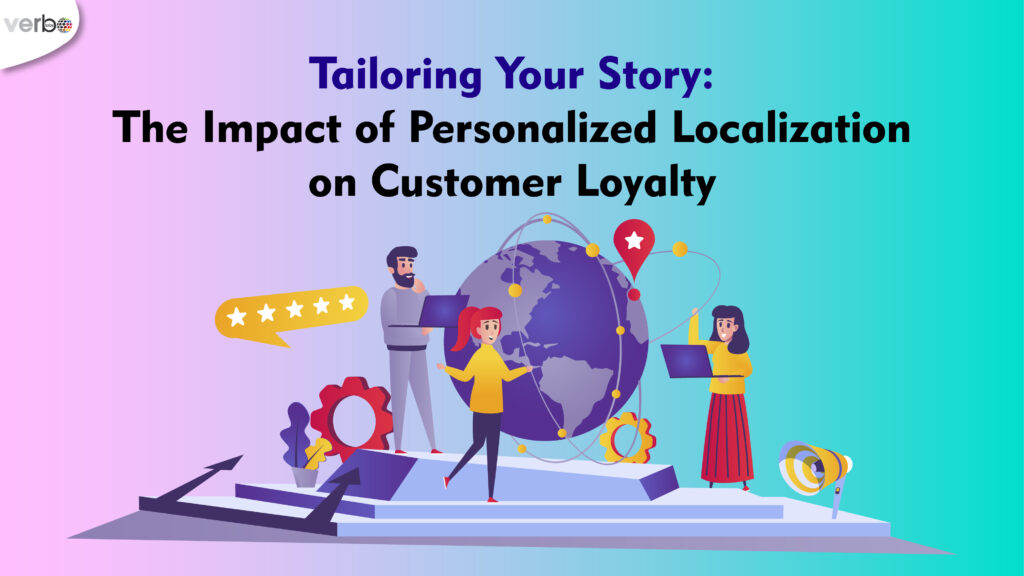In the fast-paced and interconnected world of business, the ability to connect with your audience on a personal level has become more critical than ever. As companies expand globally, the challenge of maintaining a strong and loyal customer base becomes increasingly complex. One powerful strategy that has emerged to address this challenge is personalized content localization services. By tailoring your brand story to resonate with diverse cultural nuances, businesses can create a deeper and more meaningful connection with their customers, ultimately fostering long-term loyalty.
Understanding Personalized Localization
Personalized content localization services are more than just mere content translation. It mostly involves adapting product messaging, marketing materials, and overall brand narrative to suit the cultural and linguistic nuances of specific target markets. This process requires an in-depth understanding of the local customs, traditions, and preferences that shape consumer behavior in each region. For example, what works as an effective advertising strategy in one country may not have the same impact in another due to cultural differences. Personalized localization takes these distinctions into account, ensuring that your brand resonates authentically with local audiences.
Building Cultural Bridges
One of the key benefits of personalized localization is the ability to build cultural bridges. When customers feel that a brand understands and respects their cultural context, they are more likely to form a strong emotional connection. This connection transcends the transactional nature of business, evolving into a genuine relationship based on shared values and cultural understanding.
For instance, a global clothing retailer might customize its marketing campaign to reflect the fashion preferences and style trends of a specific region. By incorporating local influencers, traditional motifs, and even language nuances, the brand can create a narrative that feels tailor-made for the local audience. This not only boosts engagement but also establishes a sense of trust and authenticity.
Enhancing customer loyalty
The true measure of the success of personalized localization lies in its impact on customer loyalty. When customers feel seen, heard, and understood, they are more likely to remain loyal to a brand. This loyalty extends beyond the first purchase, as customers become advocates who share their positive experiences with others.
Consider the example of a global food and beverage company introducing a new product in various markets. Instead of employing a one-size-fits-all approach, the company tailors its marketing materials to highlight the product’s alignment with local tastes, culinary traditions, and lifestyles. This not only increases the likelihood of a successful product launch but also fosters a sense of loyalty among consumers who appreciate the brand’s effort to cater to their preferences.
Few Examples Through Case Studies in Personalized Localization
Several companies have successfully implemented personalized localization strategies to strengthen their global presence and enhance customer loyalty.
1. Coca-Cola:
Coca-Cola is a prime example of a brand that excels at personalized localization. The iconic red cans may look the same globally, but the company adapts its advertising campaigns to reflect local cultural nuances. From featuring local celebrities to incorporating region-specific festivities, Coca-Cola creates a sense of belonging for consumers around the world.
2. Airbnb:
As a platform that connects hosts with travelers, Airbnb relies heavily on personalized localization. The company tailors its user interface, communication, and marketing efforts to match the cultural expectations and preferences of each region. By doing so, Airbnb ensures that its platform feels like a local experience, fostering trust and loyalty among its diverse user base.
3. Nike:
Nike’s “Just Do It” slogan has become a global mantra, but the company takes it a step further by customizing its marketing campaigns to resonate with local audiences. By featuring local athletes, incorporating cultural references, and adapting product messaging, Nike ensures that its brand story is relatable and inspiring on a personal level.
Implementing Personalized Localization Strategies
To implement effective personalized localization strategies, businesses should follow a systematic approach:
1. Comprehensive Cultural Research:
Invest time and resources in understanding the cultural nuances of your target markets. This includes language considerations, local traditions, social norms, and consumer behaviors. The more comprehensive your cultural research, the better equipped you’ll be to tailor your brand story effectively.
2. Collaborate with Local Experts:
Engage local experts, influencers, or agencies to provide insights and guidance on cultural sensitivities. Collaborating with individuals who understand the intricacies of the local market can help you avoid missteps and ensure that your messaging is culturally appropriate.
3. Adapt Content and Messaging:
Customize your marketing materials, product messaging, and overall brand narrative to align with the cultural expectations and preferences of each target market. This may involve creating region-specific campaigns, adjusting imagery, and even using language-appropriate variations of slogans and taglines.
4. Leverage Technology:
Utilize technology tools and platforms that facilitate personalized localization. This includes translation services, content management systems with localization capabilities, and data analytics tools to track the effectiveness of your localized campaigns.
Conclusion
In the era of global connectivity, the importance of personalized language localization services cannot be overstated. Businesses that invest in understanding and embracing the cultural diversity of their customer base are better positioned to create lasting connections. By building cultural bridges, enhancing customer loyalty, and sharing authentic narratives, companies can turn customers into brand advocates who appreciate the effort to speak directly to their individual experiences. In a world where personalization is king, personalized localization emerges as a powerful tool for businesses seeking to thrive in the global marketplace.



